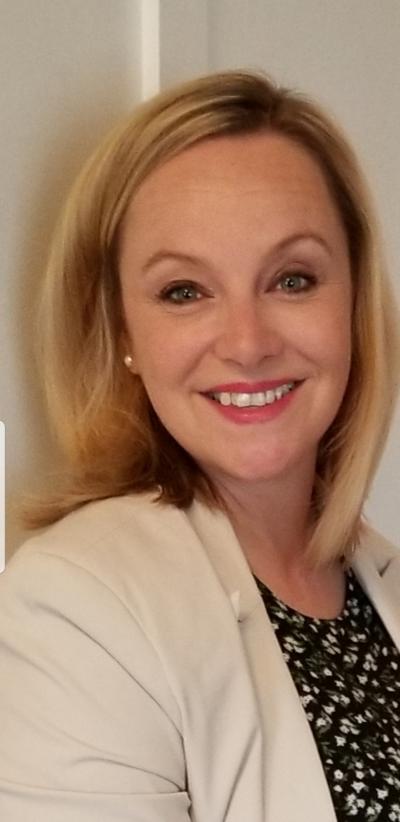Humber College professor Andrea Rutherford felt “really unprepared” for clinical practice after graduating with a diploma in Nursing. Now, decades later, she is the program coordinator for the Developmental Services Worker diploma program and teaches students in the Bachelor of Behaviour Science program.
“I didn’t want our students to feel the way I did going to field placements, so I started to simulate scenarios or bring in guest speakers. I also draw on my own background and experience,” she said.
 Rutherford’s first full-time job was as a research assistant at The Centre for Addiction and Mental Health (CAMH). It proved a valuable personal and professional experience where she heard the stories of people living with severe and persistent mental health issues, in their own words.
Rutherford’s first full-time job was as a research assistant at The Centre for Addiction and Mental Health (CAMH). It proved a valuable personal and professional experience where she heard the stories of people living with severe and persistent mental health issues, in their own words.
“I took that into my second job at Trillium Health Centre where I was able to help start one of their first mental outpatient case management teams,” she said.
During her time there, she saw services shift from the hospital into the community. Embracing the move, she began teaching and working with community agencies to improve service delivery. She had, after all, spent years connecting with people they serve.
“I can also help students make these connections from theory to practice and prepare themselves for the situations they find themselves in. When you hear stories directly from people receiving support and services and families you have more context.”
More than curriculum
One in five Canadians will experience a mental health issue in a given year, according to the Canadian Mental Health Association (CMHA). Students busy with courses, jobs, and COVID-19 stressors can be worn thin mentally and are especially vulnerable.
“Just by nature of the content we teach and the demographic, we have a lot of students, who come to our field with challenges and issues and lived experiences themselves,” said Rutherford.
Much of the course material is challenging, and students tend to identify with the situations they’re exposed to in the classroom. To be effective in the field, though, they must learn to cope with their own mental health well enough to separate themselves from their future clients.
“We build it into the courses inherently. If you don’t take care of yourself, you’re not going to be successful in supporting someone else,” said Rutherford.
That self-care, though, is crucial even before they enter the workforce.
Coping beyond the classroom 
Natasha Daly is a recent graduate of the Developmental Services Worker program and is now pursuing her Bachelor of Behaviour Science degree while working in the field to support herself.
Mental illness looms large in both her professional and personal life. She was diagnosed with Major Depressive Disorder and Generalized Anxiety Disorder at 17 and experiences physical symptoms that range from lack of appetite and sleep to a feeling of numbness so intense that she once thought she was having a stroke.
Even harder to cope with are the intrusive thoughts, panic attacks and the feelings of depression.
“It makes me distracted and can make me unmotivated. It can really take away from the joy of learning for me. When you’re so distracted and caught up with your own issues internally, learning can become a chore,” she said.
Daly takes medication, and has found she receives some relief when she makes time for meaningful experiences outside of work or school, like yoga and horseback riding.
In class – and now online – she is open with her professors about the state of her mental health. In Rutherford’s class, she was met with support and understanding.
“She was flexible with me when I said ‘Hey, listen, I’m having a hard time,’ and all her assignments were fair. She had the experience where she can relate it to her students in the classroom,” said Daly.
Rutherford also brings a distinct perspective which recognizes the importance of physical, mental and psychosocial health, which Daly has found especially helpful in her life, studies and work.
Daly, like Rutherford, has found a way to harness what she has learned to help others.
“I can see their perspective because of my experience. I can pick out their symptoms and can relate in terms of how different medications work,” she said.
Her own challenges, combined with the personal narratives she is exposed to in class, have prepared her to connect with clients – and help them in a way only she can.